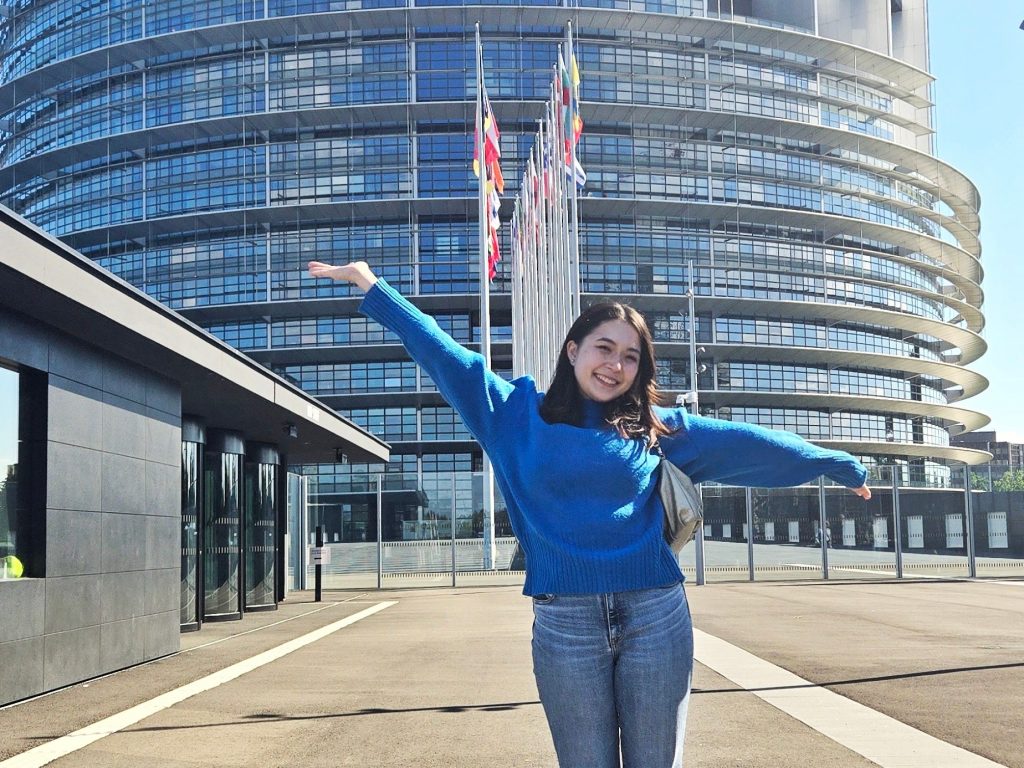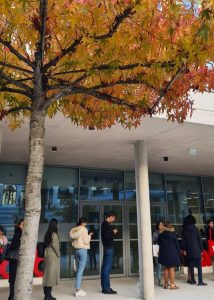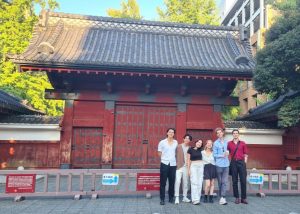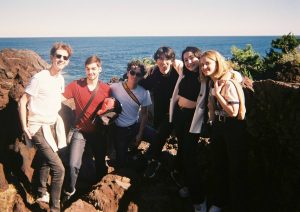Reflecting on my two years in the Sciences Po Paris-GraSPP dual degree program as I approach graduation, I realize how profound the impact of this program has been on shaping my future career path and on my personal development.
When I came across this program through the endorsement of my peers and seniors, I was completing my fourth year in the undergraduate program of International Relations at the College of Arts and Sciences of the University of Tokyo. After navigating two years of pandemic-induced uncertainty and grappling with questions about my future direction and societal impact, I found myself eager to explore opportunities beyond the realm of diplomacy.
The variety of courses and opportunities provided by this dual degree program in my two home countries ultimately convinced me to pursue my studies in the field of public policy. In addition to be in the continuity of my previous studies, it allowed me to further specialize in educational and D&I policies, especially through the large choice of streams (11 in total) at Sciences Po, including social innovation and social policies, as well as the wide selection of practical courses delivered at GraSPP.
The rhythm in the first year at Sciences Po was demanding, with classes lasting two hours, running from as early as 8 a.m. to as late as 9 p.m. It was accompanied by a significant volume of assignments, including regular reading, policy papers, presentations, and exams. Despite the rigorous schedule, the experience proved to be incredibly rewarding. We had the opportunity to engage in a diverse line-up of classes extending across different streams, from philosophical explorations of the concept of “consent” to collaborative projects with a prestigious video game development firm.
We could also find courses that were focused on particular themes, hosting leading experts and practitioners from the field, such as courses on social entrepreneurship or D&I in the cultural sector. The emphasis on group work across many courses allowed us to enhance our leadership skills, foster close collaboration, and work effectively with our peers.
Courses at GraSPP presented their own set of challenges. Unlike Sciences Po where tasks were more evenly distributed, assignments, apart from daily readings, tended to be concentrated at the end of the semester, necessitating careful and rigorous scheduling and organization. Nevertheless, this course structure, coupled with the school’s extensive facilities, provided us with ample time to enjoy the numerous opportunities to connect over extra-curricular activities with peers. Additionally, several opportunities, such as the GPPN contest, offered opportunities to immerse ourselves into projects we believed would have a meaningful impact on future society.
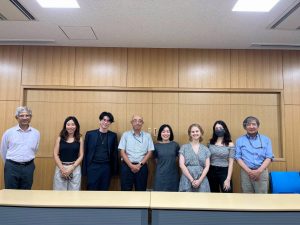
Class sizes, often ranging from 10 to 30 students, fostered close interaction with professors. This intimate environment facilitated frequent opportunities to engage with faculty, ask questions, and deepen our understanding of the material. Many professors also took a proactive role in offering guidance on academic and career matters, which was particularly encouraging. Additionally, the flexible course registration process also allowed us to browse across all the possibilities offered by not only within GraSPP but also across other departments.
Capstone classes were especially memorable, offering the chance to collaborate closely with prestigious clients from both the private and public sectors. Through these projects, we were able to produce comprehensive group reports that identified and addressed the clients’ needs, providing practical experience and valuable insights into real-world challenges.
Living in Paris and Tokyo also had its perks, each with its own vibrant and dynamic environment. What impressed me in Paris as a student studying social policies, was witnessing the direct impact of these policies on French society. The frequent demonstrations and active student protests, such as those challenging pension reforms, offered a real-time context to our studies, making our academic experience deeply relevant and engaging.
Tokyo, with its rich cultural contrasts to Western societies, offered, on the other hand, a distinct perspective on societal dynamics. I believe the city’s unique cultural landscape offers a valuable alternative lens through which to observe and understand societal challenges.
What I had not anticipated was the profound impact of being surrounded by such an inspiring and diverse group of students from across various backgrounds—spanning age, nationality, professional, and academic experiences. I had the opportunity to forge unique and incredible connections with peers in both France and Japan. I have met people with inspiring experiences and insight, who led impactful initiatives such as organizing lectures with guests from the NGO sector to raise awareness on the plight of refugees, conducting inspiring workshops for understanding climate change better, or providing crucial support and assistance to other students in challenging times.
Spending two years alongside my peers also gave me perspective on my career path and has broadened my vision of how I can impact society in my own way. The friendships I have developed during this unforgettable journey of two years are ones I will treasure for a lifetime.
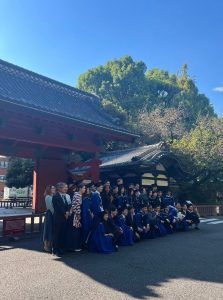
If I were to offer final advice to prospective students of this program, it would be to seize every opportunity that comes your way.
Take advantage of the chance to attend classes in French at Sciences Po and in Japanese at GraSPP if your language proficiency allows, as they are often both enriching and insightful despite their challenges. Explore courses from other streams and departments, as they often provide unexpected perspectives on your areas of interest. Participate in programs and contests offered by the school, as these experiences are rewarding regardless of the outcome. Finally, make an effort to connect with students from different streams and programs, such as the Japanese student cohort in GraSPP.
These connections will undoubtedly lead to unforgettable relationships that will last far beyond the two years of the program.



